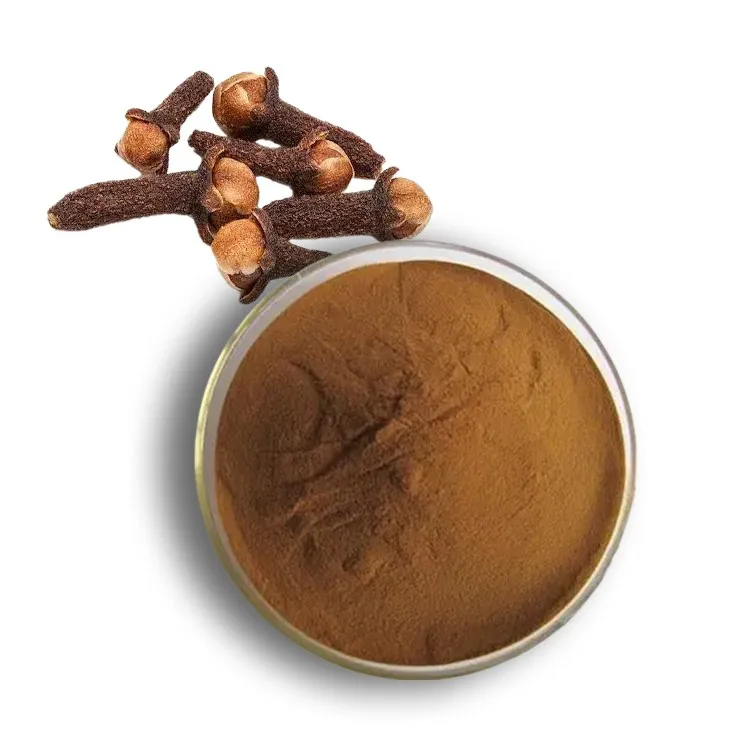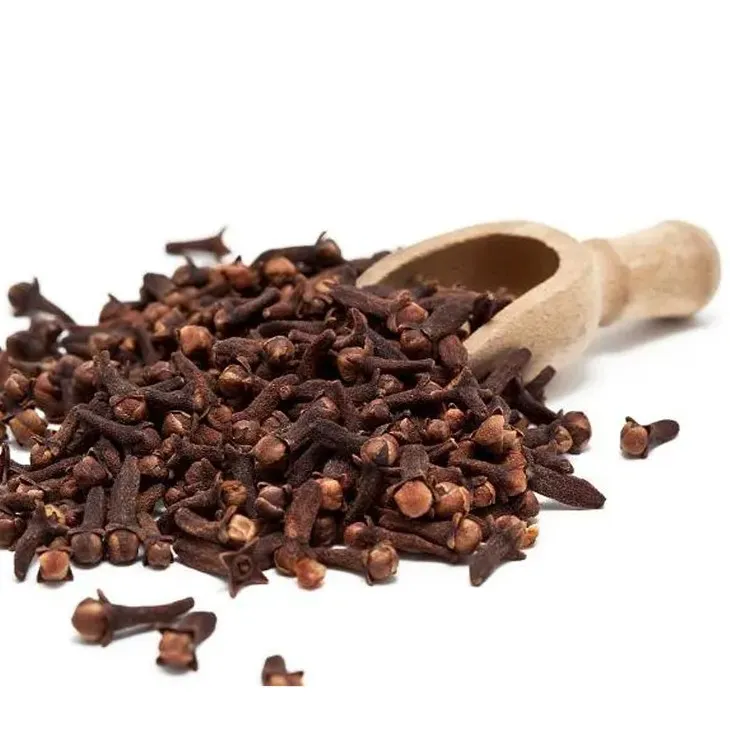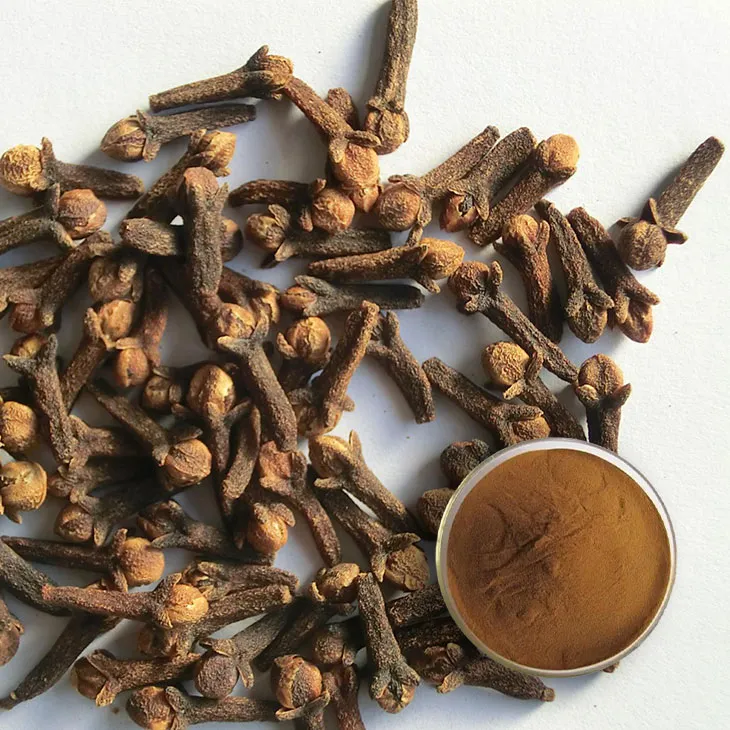- 0086-571-85302990
- sales@greenskybio.com
How do clove powder manufacturers wholesale and customize products?
2024-12-21

1. Introduction
Clove Powder, with its unique flavor and various potential uses in food, medicine, and cosmetics, has a growing market demand. For Clove Powder manufacturers, effectively managing wholesale and customization operations is crucial for business success. This article will explore in detail how they carry out these two important aspects of their business.

2. Wholesale for Clove Powder Manufacturers
2.1 Cost - effectiveness
Cost - effectiveness is a key factor in wholesale. Manufacturers need to optimize their production processes. This may involve using advanced machinery to increase production efficiency. For example, modern grinding equipment can not only improve the fineness of clove powder but also speed up the production process. By reducing production time per unit, the overall cost can be decreased. Another aspect is raw material sourcing. Manufacturers should look for reliable suppliers who can provide high - quality cloves at a reasonable price. They may establish long - term partnerships with clove growers or importers to ensure a stable supply of raw materials at favorable prices.
2.2 Inventory Management
Good inventory management is essential for timely supply in the wholesale business. Manufacturers need to accurately predict market demand. They can analyze historical sales data, market trends, and seasonality factors. For instance, during the holiday season, the demand for clove - flavored products may increase, so they should adjust their inventory levels accordingly. Implementing an inventory management system helps in tracking the quantity of clove powder in stock, its location in the warehouse, and the time it has been stored. This system can also send alerts when inventory levels reach a certain threshold, enabling manufacturers to reorder in time to avoid stock - outs.
2.3 Understanding Market Trends
To be successful in wholesale, manufacturers must have a deep understanding of market trends. They need to keep an eye on consumer preferences. For example, currently, there is a growing trend towards natural and organic products. Clove powder manufacturers can capitalize on this trend by promoting their products as natural additives in food and cosmetics. Additionally, they should monitor competitor activities. If a competitor launches a new clove - based product with unique packaging or marketing, the manufacturer may need to respond by innovating their own product offerings. Market research can be conducted through surveys, interviews with customers and retailers, and analysis of industry reports.

3. Customization for Clove Powder Manufacturers
3.1 Production Flexibility
Customization requires a high level of production flexibility. Manufacturers need to be able to adjust the recipes of clove powder according to customer requests. For example, some customers may require a stronger or milder flavor of clove powder for their specific products. This may involve changing the proportion of different components in the powder or adding other complementary ingredients. In addition to recipes, they also need to be flexible in packaging designs. Customers may have different requirements for packaging size, material, and appearance. For instance, a high - end cosmetic brand may request a small, elegant glass jar for their clove - based skin cream, while a food manufacturer may prefer a large, resealable plastic bag for their clove - flavored seasoning.
3.2 Adjusting Product Features
Besides recipes and packaging, manufacturers should be able to adjust product features as per customer needs. This could include the particle size of the clove powder. Some applications may require a fine powder, while others may need a coarser texture. The moisture content of the powder can also be adjusted. For products that need a longer shelf - life, a lower moisture content may be necessary. Another important feature is the purity of the clove powder. In the pharmaceutical industry, a high - purity clove powder may be required, while in the food industry, a certain level of purity that meets food safety standards is sufficient.
3.3 Meeting Regulatory Requirements and Quality Standards
For both wholesale and custom - made clove powder products, meeting regulatory requirements and quality standards is non - negotiable. In the food industry, clove powder must comply with food safety regulations, such as limits on pesticide residues and microbial contamination. In the pharmaceutical and cosmetic industries, there are even stricter requirements regarding ingredient purity, manufacturing processes, and product labeling. Manufacturers need to have a quality control system in place. This system should include raw material inspection, in - process quality control, and final product testing. Regular audits of the production facility by regulatory authorities are also common, and manufacturers must ensure that they are always in compliance.

4. Conclusion
In conclusion, for clove powder manufacturers, wholesale and customization are two important pillars of their business. In the wholesale aspect, focusing on cost - effectiveness, inventory management, and market trends can help them gain a competitive edge in the market. In customization, production flexibility, adjustment of product features, and compliance with regulatory requirements and quality standards are essential. By effectively managing both wholesale and customization operations, clove powder manufacturers can not only meet the diverse needs of their customers but also ensure the long - term growth and success of their business.
FAQ:
Question 1: What are the key factors for clove powder manufacturers to ensure cost - effectiveness in wholesale?
To ensure cost - effectiveness in wholesale, clove powder manufacturers can optimize production processes. This may include sourcing high - quality yet reasonably - priced raw materials in large quantities, improving production efficiency through advanced machinery and skilled labor, and reducing waste during the manufacturing process. Additionally, they can look for cost - effective packaging solutions without sacrificing product quality.
Question 2: How can clove powder manufacturers manage inventory effectively for wholesale?
Effective inventory management for wholesale involves several strategies. Manufacturers should use inventory management systems to accurately track stock levels. They need to forecast demand based on market trends, historical sales data, and customer orders. This helps in determining the optimal quantity of clove powder to produce and store. Regular audits of inventory can also prevent overstocking or stockouts, ensuring timely supply to customers.
Question 3: What are the main challenges in customizing clove powder products?
The main challenges in customizing clove powder products include the need for flexibility in production. Adjusting recipes, packaging designs, and product features according to customer requests can be complex. It may require additional investment in research and development, as well as in modifying production lines. Ensuring that customized products still meet regulatory requirements and quality standards is also a significant challenge.
Question 4: How do clove powder manufacturers ensure their products meet regulatory requirements in both wholesale and customization?
Manufacturers should stay updated with local and international regulations regarding food safety and product quality. This involves conducting regular quality control tests at every stage of production, from raw material sourcing to the final product. For customization, they need to ensure that any changes made to the product still comply with relevant regulations. Documentation of all processes and tests is crucial to prove compliance.
Question 5: What role does market trend research play in the wholesale of clove powder?
Market trend research is essential in the wholesale of clove powder. It helps manufacturers identify popular products and emerging consumer demands. By understanding market trends, they can adjust their product offerings, such as introducing new flavors or packaging sizes. This also enables them to price their products competitively and target the right customer segments, ultimately increasing sales volume.
Related literature
TAGS:- ▶ Hesperidin
- ▶ citrus bioflavonoids
- ▶ plant extract
- ▶ lycopene
- ▶ Diosmin
- ▶ Grape seed extract
- ▶ Sea buckthorn Juice Powder
- ▶ Beetroot powder
- ▶ Hops Extract
- ▶ Artichoke Extract
- ▶ Reishi mushroom extract
- ▶ Astaxanthin
- ▶ Green Tea Extract
- ▶ Curcumin Extract
- ▶ Horse Chestnut Extract
- ▶ Other Problems
- ▶ Boswellia Serrata Extract
- ▶ Resveratrol Extract
- ▶ Marigold Extract
- ▶ Grape Leaf Extract
- ▶ blog3
- ▶ blog4
- ▶ blog5
-
Pure 85% Tomentil Extract.
2024-12-21
-
Lycopene
2024-12-21
-
Uridine-5'-monophosphate Disodium salt
2024-12-21
-
Red Date Extract
2024-12-21
-
Curcumin
2024-12-21
-
Curcuma Longa Extract/Turmeric extract
2024-12-21
-
Astaxanthin
2024-12-21
-
Apricot Powder
2024-12-21
-
Bitter Melon Extract
2024-12-21
-
Beetroot Powder
2024-12-21
-
Eyebright Extract
2024-12-21





















